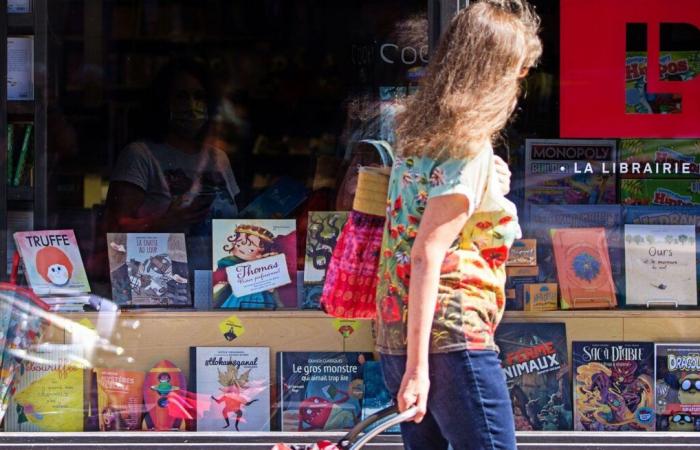Dear Mrs. Janette Bertrand, the first edition of the literary prize bearing your name will take place on November 27, as part of the Montreal Book Fair. This distinction, the first of a feminist nature in Quebec, was created to reward works that address “social issues such as gender equality, women’s autonomy and the fight against gender violence.”
And many said to themselves, during this announcement: it was about time!
The presentation session of the finalists and the round table that followed last Sunday at the BAnQ were particularly rich and touching. More than relevant current topics were addressed, such as the relationship between the industry and male classics, the importance of writing in social changes and the current rise of the right in the political landscape.
But above all, feminists from all walks of life were present in the room to celebrate your contribution to the fight for women’s rights in Quebec, in addition to exploring in depth the literary worlds of your next generation. Martine Delvaux, Léa Clermont-Dion, Claudia Larochelle, Marie-Hélène Larochelle and Élise Turcotte were particularly generous with the public.
Obviously, all the finalists in this version are white and cisgender, but the members of the jury in subsequent years will certainly be able to put forward a diversity more representative of Quebec demographics.
However, and this is the main issue raised by this letter, all the works selected are aimed at an adult audience. Children’s literature is not eligible for the Janette-Bertrand literary prize.
There is a certain irony in the fact that the Montreal Book Fair ignores children’s literature, since you yourself began your speech on Sunday by emphasizing the essential contribution of reading at a young age. You were only able to understand in your thirties that you were living with dyslexia, and this is precisely the kind of journey that actresses in the literary world are helping to avoid these days.
Authors, illustrators, teachers, librarians and speakers work hard every day to highlight literature for young people, in all its forms; from hardback books to comics, including albums, novels and documentaries, Quebec children’s literature is multiple and abundant, but still too little known.
But above all, she can and must be a feminist. It would be more legitimate for these efforts to be highlighted than to ignore them. And what better way to do it than through a literary prize, as is the case with the first edition of the one that bears your name?
The influence of reading in the lives of young people begins extremely early. Feminist authors and illustrators are paving the way for readers, as they grow up, to become interested in works that explore this same struggle.
Although you are not personally involved on the jury for the Janette-Bertrand prize, it would be very exciting if you reached an agreement with the Salon du livre so that future editions also reward a children’s author. This would be a more than deserved recognition, certainly, but also a strong symbol to support the importance that feminist literature takes on between 0 and 17 years old. It is there, the sinews of war, since the values that we assimilate early in our lives become anchored and follow us for a long time.
Today we need your help and the influence you have.
In continuity with the Paule-Daveluy residency set up by Communication-Jeunesse, which “underlines the importance and unique character of adolescent readers”, there could for example be a youth component to the Janette-Bertrand prize, the Paule-Daveluy prize. Daveluy, in the event of a partnership with the family. To name just one, the Montreal Library Prize already adheres to this model, organizing a separate awards ceremony for the adult branch and for the youth branch.
If we want to build the inclusive society of tomorrow, the one for which you have worked so hard, or even the one where equality would finally be truly achieved, children’s literature is essential.






